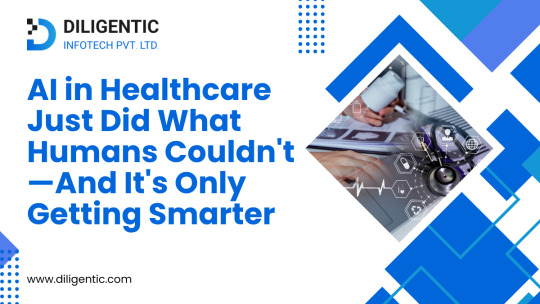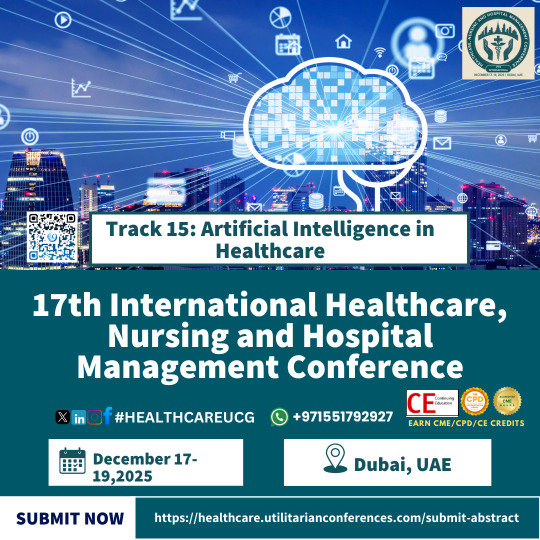#MedicalAI
Explore tagged Tumblr posts
Text
What I mean when I say let’s go play outside.










#cardiophilia#heartbeat#cardiophile#medfet#stethoscope#female heartbeat#stething#medicalai#medfetai#aimedfet aiporn
24 notes
·
View notes
Text
MedAI by Tech4Biz Solutions: Pioneering Next-Gen Medical Technologies

The healthcare industry is undergoing a seismic shift as advanced technologies continue to transform the way care is delivered. MedAI by Tech4Biz Solutions is at the forefront of this revolution, leveraging artificial intelligence and cutting-edge tools to develop next-generation medical solutions. By enhancing diagnostics, personalizing patient care, and streamlining operations, MedAI is empowering healthcare providers to deliver better outcomes.
1. AI-Driven Medical Insights
MedAI harnesses the power of artificial intelligence to analyze complex medical data and generate actionable insights. Its advanced algorithms can detect anomalies, predict disease progression, and recommend treatment pathways with unprecedented accuracy.
Case Study: A large medical center integrated MedAI’s diagnostic platform, leading to:
Faster identification of rare conditions.
A 30% reduction in misdiagnoses.
Enhanced clinician confidence in treatment decisions.
These capabilities underscore MedAI’s role in advancing clinical decision-making.
2. Personalized Patient Care
Personalization is key to modern healthcare, and MedAI’s data-driven approach ensures treatment plans are tailored to individual needs. By analyzing patient histories, lifestyle factors, and genetic data, MedAI offers more targeted and effective interventions.
Example: A chronic disease management clinic used MedAI to create personalized care plans, resulting in:
Improved medication adherence.
Decreased hospital readmission rates.
Greater patient satisfaction and engagement.
MedAI’s solutions allow providers to offer more precise, patient-centered care.
3. Enhanced Operational Efficiency
MedAI goes beyond clinical improvements by optimizing healthcare operations. Its automation tools reduce administrative burdens, freeing healthcare professionals to focus on patient care.
Insight: A regional hospital implemented MedAI’s workflow automation system, achieving:
A 40% reduction in administrative errors.
Faster patient registration and billing processes.
Streamlined appointment scheduling.
These improvements enhance overall operational efficiency and patient experiences.
4. Advanced Predictive Analytics
Predictive analytics play a vital role in preventive care. MedAI’s algorithms identify patients at high risk of developing chronic conditions, enabling early interventions.
Case Study: A primary care network used MedAI’s predictive models to monitor high-risk patients, leading to:
Early lifestyle adjustments and medical interventions.
A 25% drop in emergency room visits.
Higher enrollment in wellness programs.
By shifting to proactive care, MedAI helps reduce healthcare costs and improve long-term outcomes.
5. Revolutionizing Telemedicine
The rise of telemedicine has been accelerated by MedAI’s AI-powered virtual care solutions. These tools enhance remote consultations by providing real-time patient insights and symptom analysis.
Example: A telehealth provider adopted MedAI’s platform and reported:
Improved diagnostic accuracy during virtual visits.
Reduced wait times for consultations.
Increased access to care for rural and underserved populations.
MedAI’s telemedicine tools ensure equitable, high-quality virtual care for all.
6. Streamlining Drug Development
MedAI accelerates the drug discovery process by analyzing clinical trial data and simulating drug interactions. Its AI models help identify promising compounds faster and improve trial success rates.
Case Study: A pharmaceutical company partnered with MedAI to enhance its drug development process, achieving:
Faster identification of viable drug candidates.
Shorter trial durations.
Reduced costs associated with trial phases.
These innovations are driving faster development of life-saving medications.
7. Natural Language Processing for Clinical Data
MedAI’s natural language processing (NLP) capabilities extract insights from unstructured medical data, such as physician notes and discharge summaries. This allows for faster retrieval of vital patient information.
Insight: A healthcare system implemented MedAI’s NLP engine and experienced:
Improved documentation accuracy.
Quicker clinical decision-making.
Enhanced risk assessment for high-priority cases.
By automating data extraction, MedAI reduces clinician workloads and improves care quality.
8. Robust Data Security and Compliance
Data security is paramount in healthcare. MedAI employs advanced encryption, threat monitoring, and regulatory compliance measures to safeguard patient information.
Example: A hospital using MedAI’s security solutions reported:
Early detection of potential data breaches.
Full compliance with healthcare privacy regulations.
Increased patient trust and confidence in data protection.
MedAI ensures that sensitive medical data remains secure in an evolving digital landscape.
Conclusion
MedAI by Tech4Biz Solutions is redefining healthcare through its pioneering medical technologies. By delivering AI-driven insights, personalized care, operational efficiency, and robust security, MedAI empowers healthcare providers to navigate the future of medicine with confidence.
As healthcare continues to evolve, MedAI remains a trailblazer, driving innovation that transforms patient care and outcomes. Explore MedAI’s comprehensive solutions today and discover the next frontier of medical excellence.
For More Reachout :https://medai.tech4bizsolutions.com/
3 notes
·
View notes
Text
How MED42-V2 is transforming healthcare with its advanced AI capabilities. Fine-tuned using specialized clinical data, this clinical large language model employs multi-stage preference alignment to provide accurate medical diagnoses. It outperforms Llama3 and GPT-4 in several medical benchmarks. Learn how this open-access model is revolutionizing clinical decision-making.
#AI#Healthcare#MED42V2#ClinicalAI#MedicalAI#open source#artificial intelligence#opensource#machinelearning
2 notes
·
View notes
Text
Doctors in trouble? Elon musk’s Grok ai Can now Diagnose diseases ! Ai Vault
youtube
Is AI the future of medicine? Elon Musk’s Grok AI claims it can diagnose diseases and predict medical conditions before symptoms even appear—but can it really replace doctors? In this video, we dive into the AI healthcare revolution, exploring how artificial intelligence is transforming medical diagnosis, the accuracy of AI-driven systems, and whether Grok can outperform human doctors. From early disease detection to AI-powered treatment plans, we uncover the potential, challenges, and ethical concerns of AI in medicine. Will AI reshape healthcare, or is human expertise irreplaceable? Watch now to discover the truth!
#ai#artificialintelligence#healthcareai#medicalai#elonmusk#grokai#futureofmedicine#aitechnology#aivsdoctors#aidiagnostics#machinelearning#healthtech#techinnovation#deeplearning#aifuture#cybersecurity#grok3#grok2#musk#deepseek#Youtube
0 notes
Text
🚨 BREAKING: Microsoft just dropped a bombshell in the medical world! 💥
Its new #AI system, powered by OpenAI’s o3 model, outperformed human doctors in diagnosing complex health cases – solving 80% vs just 20% for real physicians. 🧠🩺
A new era of #MedicalSuperintelligence is here.
🧬 Diagnoses faster 📊 Orders tests smarter 🧠 Learns like expert panels 💸 Cuts healthcare costs
Microsoft says we're 5–10 years away from error-free AI diagnostics.
Doctors aren’t being replaced—but they will be empowered like never before. 👨⚕️👩⚕️
Read more 👇
#MicrosoftAI#OpenAI#MustafaSuleyman#FutureOfMedicine#HealthcareAI#ArtificialIntelligence#AGI#MedicalAI#HealthTech#DigitalHealth#AIHealthcareRevolution#AIinMedicine#AIInnovation#NEJM#OpenAIo3#TechForGood#AITransformation#SmartHealthcare#DiagnosticAI#GPT4#NextGenAI#AInews#AIbreakthrough#HealthInnovation#AIinHealthcare#AIforDoctors
0 notes
Text
LLM-Powered ICU Data Mining Tool
ICU-GPT is an AI-powered platform designed to simplify access and analysis of complex critical care databases like MIMIC and eICU-CRD. It combines Docker-based deployment, interactive data visualization tools (Metabase and Superset), and advanced large language models (LLMs) to enable clinicians to generate SQL queries using natural language—no coding required. The system supports multi-schema database structures, enhances human-AI collaboration, and ensures a user-friendly web interface for efficient data extraction. ICU-GPT aims to bridge the gap between clinical research and data science, empowering healthcare professionals to harness big data for better patient outcomes.
#sciencefather #scientistaward #database #medicaldatabases #SQLGeneration #MedicalAI
International Database Scientist Awards Website Link: https://databasescientist.org/ Nomination Link: https://databasescientist.org/award-nomination/?ecategory=Awards&rcategory=Awardee Contact Us For Enquiry: [email protected]
#DatabaseScience #DataManagement #DatabaseExpert #DataProfessional #DatabaseDesign #DataArchitecture #DatabaseDevelopment #DataSpecialist #DatabaseAdministration #DataEngineer #DatabaseProfessional #DataAnalyst #DatabaseArchitect #DataScientist #DatabaseSecurity #DataStorage #DatabaseSolutions #DataManagementSolutions #DatabaseInnovation #DataExpertise
Youtube: https://www.youtube.com/@databasescientist Twitter: https://x.com/databasesc10061 Instagram: https://www.instagram.com/databasescientist123/ Facebook: https://www.facebook.com/profile.php?id=61578158900423 Pinterest: https://in.pinterest.com/databasescientist/ Blogger: https://www.blogger.com/blog/posts/1267729159104340550 Whatsapp Channel: https://whatsapp.com/channel/0029VbBII1lLSmbfVSNpFT2U
0 notes
Text
youtube
How is Women’s Health Benefiting from AI?
AI is quietly transforming women’s healthcare—from spotting tiny tumors in breast cancer to helping doctors estimate fetal health more accurately in India. Here’s how AI is saving lives, one scan at a time.
#AIinHealthcare#WomensHealth#MedicalAI#BreastCancer#DigitalHealth#AIForGood#HealthTech#BreastCancerAwareness#PregnancyCare#NevasTech#breastcancer#cancer#breastcancersurvivor#niramai#cancerawareness#chemotherapy#cancerfighter#womenshealth#breastcancercare#CancerDetection#FutureOfMedicine#Youtube
0 notes
Link
#healthcareautomation#MedicalAI#MedicalImaging#MetaAI#nnU-Netcomparison#radiologyinnovation#SAMmodel#spinaldiagnostics
0 notes
Text
📊 Why AI in Healthcare Will Define the Next Decade of Medicine
Over the next 10 years, AI will be at the core of medical innovation, from drug development to virtual health assistants. But the real question is: how prepared are we? This blog dives into the key trends, current use cases, and ethical implications of AI in healthcare. It’s not just about algorithms — it’s about improving human lives. 👉 Read the blog: AI in Healthcare

#AIinHealthcare#medicalai#HealthInnovation#DigitalTransformation#TechInMedicine#HealthcareLeaders#AI#healtcare
0 notes
Text

Blending clinical insight with smart imaging 📊🧠, this AI-based tool fuses ML & deep learning to conquer stroke diagnosis challenges. Gradient boosting ensures accuracy 💯, while CNNs boost detection power 🚀. Tuned for clinical precision 🎯, it streamlines decision-making and uplifts patient recovery in urgent care settings. 💉📈 World Top Scientists Awards Visit Our Website 🌐: worldtopscientists.com Nominate Now📝: https://worldtopscientists.com/award-nomination/?ecategory=Awards&rcategory=Awardee Contact us ✉️: [email protected] Here Connected With: ================== Whatsapp : whatsapp.com/channel/0029Vb5At1zDuMRbivne3i17 Youtube: www.youtube.com/@topscientistsawards Twitter: twitter.com/Topscienti50880 Linked in: https://www.linkedin.com/in/world-top-scientists-awards-6a0768282/ Pinterest: in.pinterest.com/topscientists/ Blog: scientistsawards25.blogspot.com/ Instagram: www.instagram.com/world_top_scientists/
#Sciencefather#ResearchAwards#WorldTopScientistsAwards#StrokeDiagnosis#AIMedicine#DeepLearningInHealthcare#MedicalAI#SmartHealthcare#NeuroAI#ClinicalDecisionSupport#EnsembleLearning#HealthTech#ImagingAI#GradientBoosting#CNNForDiagnosis#CriticalCareAI#AIInStrokeDetection#BusinessEthics#professors#doctor#researchers#phd#Dendrobium#Phytochemistry#TraditionalMedicine#PharmacologicalMechanism#NaturalProducts#HerbalMedicine#MedicinalPlants#DendrobiumResearch
0 notes
Text

Call for Abstracts – Track 15: Artificial Intelligence in Healthcare 17th International Healthcare, Nursing and Hospital Management Conference December 17–19, 2025 | Dubai, UAE & Virtual Submit your research on the transformative role of Artificial Intelligence (AI) in healthcare. Topics may include AI-powered diagnostics, predictive analytics, personalized medicine, clinical decision support systems, robotic surgery, and administrative automation. Abstract Submission Deadline: June 30, 2025 Submit your abstract: https://healthcare.utilitarianconferences.com/submit-abstract WhatsApp Us: https://wa.me/+971551792927
#Healthcare#AIinHealthcare#HealthcareInnovation#MedicalAI#DigitalHealth#HealthTech#SmartHealthcare#AIDiagnostics#PredictiveAnalytics#RoboticsInMedicine#AIForDoctors#FutureOfHealthcare#ClinicalAI#AIInMedicine#HealthcareAutomation#PersonalizedMedicine
0 notes
Text
Revolutionizing AI at the Edge
In this week’s special edition of “News You Can Use” on HealthcareNOWRadio I sat down with Dinakar Munagala, CEO of Blaze, to explore the company’s remarkable journey from a garage startup to a NASDAQ-listed pioneer in Edge AI. Real-Time AI Where It Matters Most – The Edge Dinakar shares his background in chip design at Intel, where he contributed to graphics processors for Apple and Intel…

View On WordPress
#AIatTheEdge#AIchips#AIhardware#AIinHealthcare#AIrevolution#AIstartups#AItechnology#AssistiveAI#BlazeAI#DigitalHealth#EdgeAI#EdgeComputing#FutureOfAI#HealthcareInnovation#healthtech#medicalAI#NASDAQ#RealTimeAI#SmartHealthcare#TechForGood
0 notes
Text
Doctors in trouble? Elon musk’s Grok ai Can now Diagnose diseases ! Ai Vault
youtube
Is AI the future of medicine? Elon Musk’s Grok AI claims it can diagnose diseases and predict medical conditions before symptoms even appear—but can it really replace doctors? In this video, we dive into the AI healthcare revolution, exploring how artificial intelligence is transforming medical diagnosis, the accuracy of AI-driven systems, and whether Grok can outperform human doctors. From early disease detection to AI-powered treatment plans, we uncover the potential, challenges, and ethical concerns of AI in medicine. Will AI reshape healthcare, or is human expertise irreplaceable? Watch now to discover the truth!
#ai#artificialintelligence#healthcareai#medicalai#elonmusk#grokai#futureofmedicine#aitechnology#aivsdoctors#aidiagnostics#machinelearning#healthtech#techinnovation#deeplearning#aifuture#cybersecurity#grok3#grok2#musk#deepseek#Youtube
0 notes
Text
🧠 AI Revolutionizing Glioblastoma Research!
Don't forget to like and share this video Visit our page : computationalbiologists.com
Nominations page : https://computationalbiologists.com/award-nomination/?ecategory=Awards&rcategory=Awardee
Follow us on:
Instagram : https://www.instagram.com/_awardresearcher_02/ Blogger : https://www.blogger.com/blog/posts/859633461166750462 Twitter : https://x.com/AwardResearcher Facebook : https://www.facebook.com/profile.php?id=61573772493321 Tumblr : https://www.tumblr.com/computationalbiologistsawards?source=share Pintrest : https://in.pinterest.com/awardresearcher/_profile/ Youtube : https://www.youtube.com/@ResearcherAward
#Glioblastoma#BrainCancer#AIinHealthcare#CancerResearch#MedicalAI#NeuroOncology#ArtificialIntelligence
0 notes